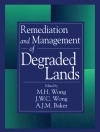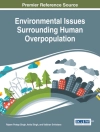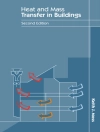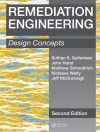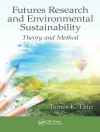’Offers an intense scholarly experience in its comprehensiveness, its variety of voices and its formal organization… the editors took a risk, experimented and have delivered a much-needed resource that upends the status-quo.’
– Architectural Histories, journal of the European Architectural History Network
'Architectural theory interweaves interdisciplinary understandings with different practices, intentions and ways of knowing. This handbook provides a lucid and comprehensive introduction to this challenging and shifting terrain, and will be of great interest to students, academics and practitioners alike.’
– Professor Iain Borden, UCL Bartlett School of Architecture
'In this collection, architectural theory expands outward to interact with adjacent discourses such as sustainability, conservation, spatial practices, virtual technologies, and more. We have in The Handbook of Architectural Theory an example of the extreme generosity of architectural theory. It is a volume that designers and scholars of many stripes will welcome.’
– K. Michael Hays, Eliot Noyes Professor of Architectural Theory, Harvard University
The SAGE Handbook of Architectural Theory documents and builds upon the most innovative developments in architectural theory over the last two decades. Bringing into dialogue a range of geographically, institutionally and historically competing positions, it examines and explores parallel debates in related fields. The book is divided into eight sections:
- Power/Difference/Embodiment
- Aesthetics/Pleasure/Excess
- Nation/World/Spectacle
- History/Memory/Tradition
- Design/Production/Practice
- Science/Technology/Virtuality
- Nature/Ecology/Sustainability
- City/Metropolis/Territory.
Creating openings for future lines of inquiry and establishing the basis for new directions for education, research and practice, the book is organized around specific case studies to provide a critical, interpretive and speculative enquiry into the relevant debates in architectural theory.
Spis treści
Introduction – 1: Architectural Theory in an Expanded Field – C. Greig Crysler, Stephen Cairns and Hilde Heynen
Introduction – 2: Reading the Handbook – C Greig Crysler, Stephen Cairns, Hilde Heynen
PART ONE: POWER/DIFFERENCE/EMBODIMENT
Introduction: Shifting Paradigms and Concerns – Hilde Heynen and Gwendolyn Wright
Architecture, Capitalism and Criticality – Ole W Fischer
Interrogating Difference: Post-Colonial Perspectives in Architecture and Urbanism – Jyoti Hosagrahar
Tendencies and Trajectories: Feminist Approaches in Architecture – Jane Rendell
Section 1 Bibliography
Citizenship – Ines Weizman
PART TWO: AESTHETICS/PLEASURE/EXCESS
Introduction: Architecture and Aesthetics – John Macarthur and Naomi Stead
Architectural Phenomenology and the Rise of the Postmodern – Jorge Otero-Pailos
Formalism and Forms of Practice – Sandra Kaji-O′Grady
Art in (and of) Architecture: Autonomy and Medium – Bart Verschaffel
Section 2 Bibliography
Consumption – Ana Miljacki
PART THREE: NATION/WORLD/SPECTACLE
Introduction: Enacting Modernity – Abdou Maliq Simone
Rethinking the Nation – Abidin Kusno
Entangled Modernities in Architecture – Duanfang Lu
Notes on the Society of the Brand – Shiloh Krupar and Stefan Al
Section 3 Bibliography
Heritage – Fernando Diez
PART FOUR: HISTORY/MEMORY/TRADITION
Introduction: Time′s Arrows: Spaces of the Past – C Greig Crysler
Preservation and Modernity: Competing Perspectives, Contested Histories and the Question of Authenticity – Mrinalini Rajagopalan
Collective Memory Under Siege: The Case of ′Heritage Terrorism′ – M Christine Boyer
Concepts of Vernacular Architecture – Robert Brown and Daniel Maudlin
Section 4 Bibliography
Culture – Paul Walker
PART FIVE: DESIGN/PRODUCTION/PRACTICE
Introduction: Architecture′s Double-Bind – Dana Cuff
Prometheus Unchained: The Multiple Itineraries of Contemporary Professional Freedom – Paolo Tombesi
Manners of Working: Fabricating Representation in Digital Based Design – Christopher Hight
Plural Profession, Discrepant Practices – David Salomon
Section 5 Bibliography
Flows – Stephen Cairns
PART SIX: SCIENCE/TECHNOLOGY/VIRTUALITY
Introduction: Technology, Science and Virtuality – Arie Graafland and Heidi Sohn
Virtual Architecture, Actual Media – N. Katherine Hayles and Todd Gannon
Technology, Virtuality, Materiality – Antoine Picon
Architecture, Technology and the Body: From the Pre-Human to the Post-Human – Jonathan Hale
Section 6 Bibliography
Infrastructure – Delia Duong Ba Wendel
PART SEVEN: NATURE/ECOLOGY/SUSTAINABILITY
Introduction: Whither ′Earthly′ Architectures: Constructing Sustainability – Simon Guy
The Ecology Question and Architecture – Richard Ingersoll
Beyond Sustainability: Architecture in the Renewable City – Peter Droege
Tropical Variants of Sustainable Architecture: A Post-Colonial Perspective – Jiat-Hwee Chang
Section 7 Bibliography
Landscape – Kelly Shannon
PART EIGHT: CITY/METROPOLIS/TERRITORY
Introduction: Metropolis, Megalopolis and Meta-City – Brian Mc Grath and Grahame Shane
The Contemporary European Urban Project: Archipelago City, Diffuse City and Reverse City. – Paola Viganò
Slum as Theory: Mega-Cities and Urban Models – Vyjayanthi Rao
Common Lines of Flight towards the Open City – Deborah Natsios
Section 8 Bibliography
Housing – Iain Low
O autorze
Hilde Heynen is a Professor of Architecture at the University of Leuven in the Netherlands.



